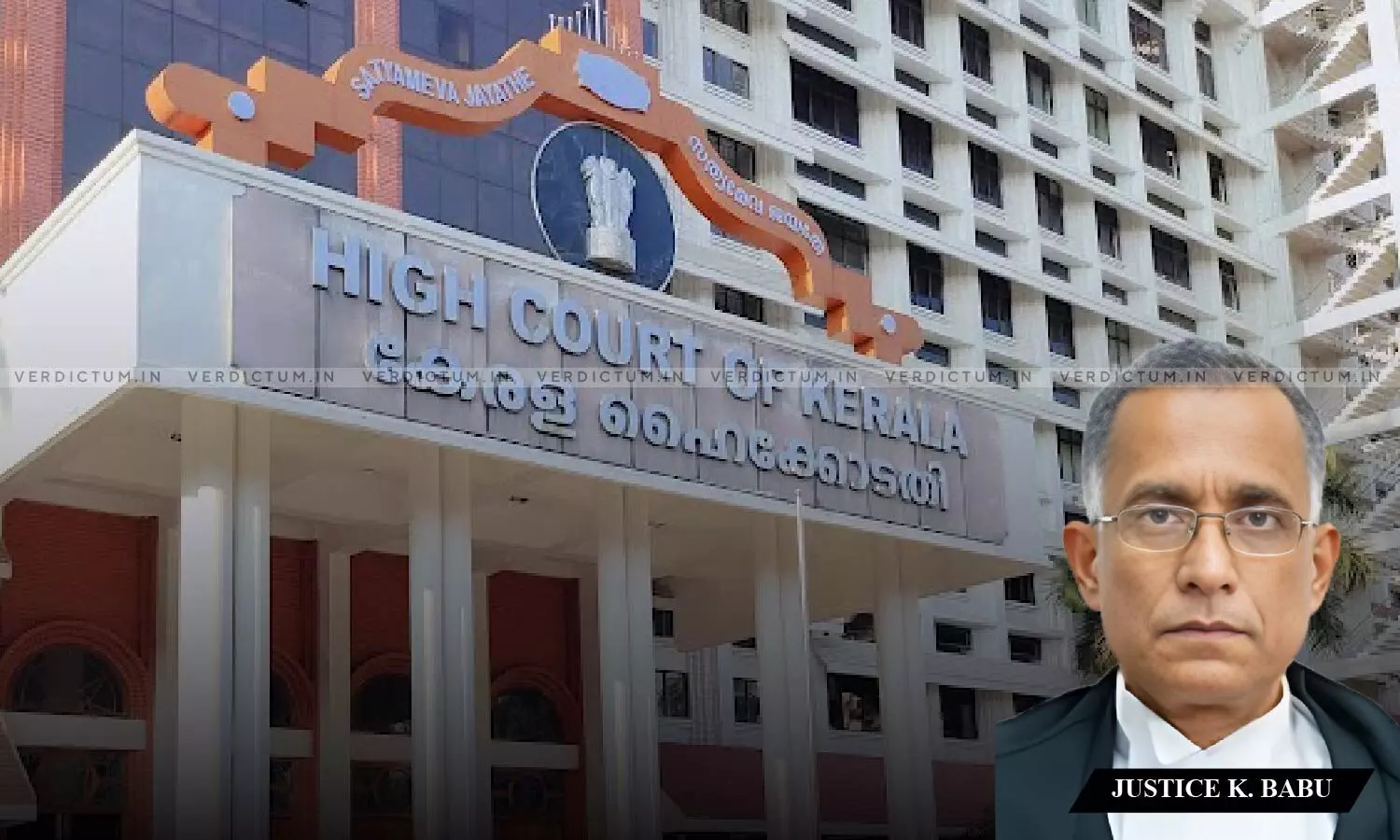
A Witness Cannot Be Prosecuted Solely On The Basis Of 'Self Incriminatory' Testimony: Kerala High Court
 |
|The Kerala High Court reiterated that if the answers given by a witness are self-incriminatory, he could not be prosecuted on the basis of his deposition in view of the proviso to Section 132 of the Indian Evidence Act.
The Court acquitted the witness convicted for an offence under the Kerala Abkari Act who was arraigned as an accused under Section 319 Code of Criminal Procedure, 1973 (‘CrPC’), solely based on his oral testimony in the Court.
The Bench of Justice K Babu held, “A witness who enters the dock is under an obligation to state the truth because of the oath taken by him, which qualifies the compulsion in the proviso to Section 132 of the Evidence Act. The position would be different when an accused voluntarily enters the dock, invoking Section 315 Cr.PC and answers questions in which case there is a waiver of the privilege, which is against being compelled to be a witness against himself. In such a situation, he is not a witness against himself but against the prosecution…In the present case, the foundation of the prosecution against the appellant was based on his testimony as a witness in the box in which he was bound to give answers which appeared to the learned Sessions Judge as incriminating. Therefore, the order passed by the learned Sessions Judge summoning the appellant to face trial was completely without jurisdiction. This illegality goes to the root of the matter, leading to the trial being vitiated.”
Advocate Blaze K Jose for the Appellant while Public Prosecutor G Sudheer with Advocate KM Firoz as Amicus Curiae appeared for the Respondent.
An appeal was filed challenging the legality of the proceedings before the Sessions Court where a witness was arraigned as an accused under Section 319 Code of Criminal Procedure, 1973, solely based on his oral testimony in the Court.
The Appellant was the charge witness in an excise case under Section 58 of the Kerala Abkari Act against another Accused i.e. Accused No. 1. The Sessions Court found that the Appellant was responsible for answering for the unauthorised storing of the contraband in the building. The Sessions Court concluded that the Appellant appeared to have committed the offence punishable under Section 58 of the Abkari Act.
Invoking the provisions of Section 319 Cr.P.C., the Sessions Court, arraigned the appellant as accused No. 2 and subsequently, acquitted accused No.1 and convicted Accused No.2/Appellant under Section 58 of the Abkari Act and sentenced him to undergo rigorous imprisonment for five years and a fine of Rs.1 Lakh.
The Amicus Curiae had submitted before the Court that the appellant was entitled to protection under the proviso to Section 132 of the Evidence Act which deals with “Witness not excused from answering on ground that answer will criminate”.
The Court referred to Sections 132 and 118 of the Evidence Act and said that the safeguard to this compulsion is that no such answer that the witness is compelled to give exposes him to any arrest or prosecution or can it be proved against him in any criminal proceeding except a prosecution for giving false evidence by such answer.
“The protection is further fortified by Article 20(3), which says that no person accused of any offence shall be compelled to be a witness against himself. This article protects a person who is accused of an offence and not those questioned as witnesses. A person who voluntarily answers questions from the witness box waives the privilege which is against being compelled to be a witness against himself, because he is then not a witness against himself but against others. Section 132 of the Indian Evidence Act sufficiently protects him since his testimony does not go against himself.”, the Court added.
The Court also observed that even assuming that the trial in the present case had not been vitiated, the prosecution miserably failed to establish its case against the Appellant as they failed to establish the conscious possession of the contraband by the appellant.
As regards the adverse remarks against the Investigating Officer, the Court held, “The learned Sessions Judge had not given any opportunity of being heard to the Investigating Officer before passing the adverse remarks…The Supreme Court has repeatedly cautioned that before any castigating remarks are made by the Court against any person, particularly when such remarks could ensue serious consequences on the future career of the person concerned, he should have been given an opportunity of being heard in the matter in respect of the proposed remarks or strictures. Such an opportunity is the basic requirement, for otherwise, the offending remarks would be in violation of the principles of natural justice.”
Therefore, the Court concluded that the Sessions Court ought not to have passed the remarks in the judgment and quashed the same.
Accordingly, the Court allowed the appeal and acquitted the Appellant.
Cause Title: G. Gopan @Gopakumar v. The State of Kerala (Neutral Citation: 2024:KER:63754)
Appearances:
Appellant: Advocate Blaze K Jose
Respondent: Public Prosecutor G Sudheer with Advocate KM Firoz as Amicus Curiae